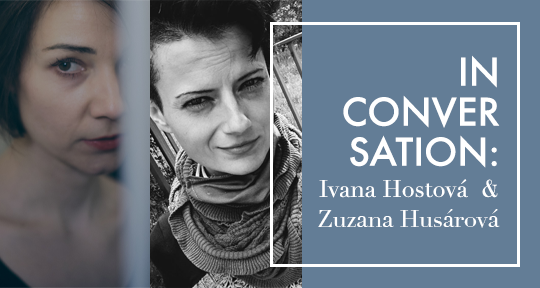The poetry and artistic projects of the Slovak poet and researcher of electronic literature Zuzana Husárová explore various media, technologies, environments, and creative methods. In 2020, she and the sound artist and software developer Ľubomír Panák created a collection of poetry generated by a neural network they named Liza Gennart. To everyone’s surprise, their Outcomes of Origin (Výsledky vzniku, VLNA/Drewo a srd) won a Slovak national poetry prize. In this conversation, the first of our two-part coverage on Liza Gennart, the poet explains the creative process behind the project and addresses the frames within which it aims to be conceptualized.
Ivana Hostová (IH): Let me start with a hypothetical question. Would Liza like to have a body in Metaverse? If so, would she be more interested in fashion or in spreading political messages? Or would she perhaps boycott such an existence at all?
Zuzana Husárová (ZH): I believe she would boycott it. In the fictional world of Stephenson´s Snow Crash, people need metaverse (this use of the term inspired Facebook), since it provides an escape from a devastating, unbearable presence. As I understand Liza, she seems to want a bright future, not just a virtual imagination.
IH: So, who or what is Liza Gennart?
ZH: She is a Slovak poetry-writing neural network, based on a GPT-2 language model, fine-tuned on a literary corpus of over two thousand predominantly contemporary Slovak titles of mostly poetry.
IH: In the epilogue you wrote for Liza, you state that if humans acquaint the programmes with our literary heritage, neural networks might understand us better in the future. You also said that striving for a better mutual comprehension between humans and machines might have the potential to deepen humanity’s understanding of itself on the one hand and to humanize new technologies on the other. Can you elaborate on this idea?
ZH: On the technological level, the first step seems to be focusing on a relevant conceptualisation and building of a proper database for training. By that we mean a database one can trust in an ethical sense and whose results can bring defamiliarization. In that passage, I meant this acquainting more in the sense of literary thinking rather than poetry itself that could be humanising for new technologies. We are striving for a thorough rethinking of all steps one is taking in the process of working with new technologies, including the use of relevant language rather than pompous news devices and employment of ethics in all stages of working with, presenting, and promoting new technologies.

